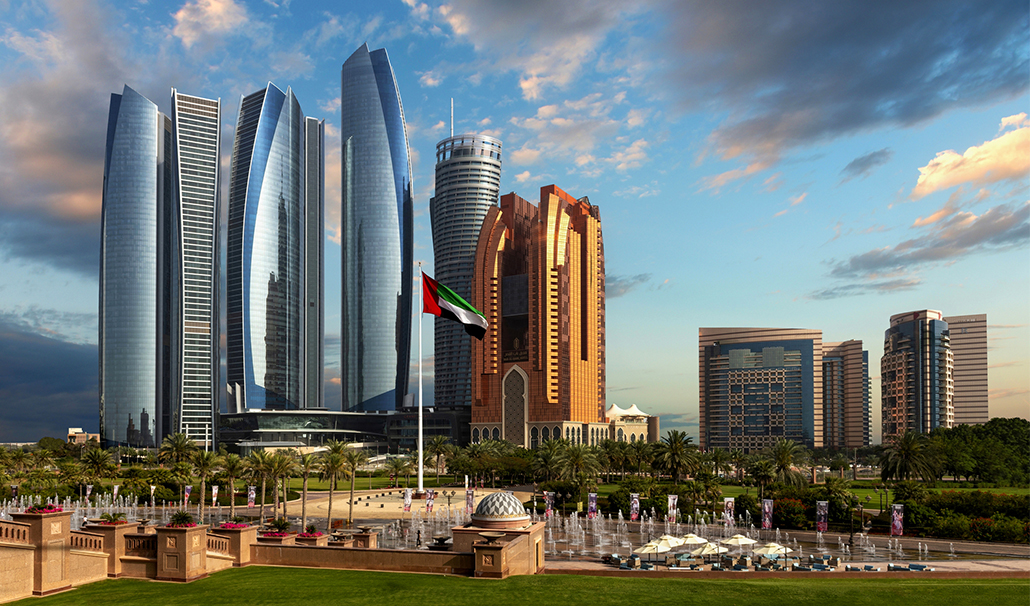Welcome to our guide on residency visas in UAE! If you’re planning to live or work in the UAE, it is crucial to understand the different types and categories of residency visas available to you. A UAE residency visa offers a range of benefits, including the ability to open a bank account, obtain a driving license, and access government services. In this guide, we’ll explore the different types and categories of UAE residency visas, eligibility requirements, how to obtain one, and the renewal and cancellation process. Let’s dive in!
First, let’s take a look at the various types of residency visas available in the UAE.
Types of UAE Residency Visa
If you’re considering getting a residency visa in the UAE, it’s essential to understand the different types available. Here are the most common types:
Long-Term Residency Visa
A long-term residency visa is suitable for individuals planning to stay in the UAE for an extended period. This type of visa is valid for up to ten years and is available for investors, entrepreneurs, and exceptional talents.
Investor Visa
Investors looking to set up a business in the UAE can apply for an investor visa. This visa is granted to those who invest a certain amount of capital in the country and provides individuals with a residency permit.
Employment Visa
An employment visa is granted to people who have secured a job in the UAE. The employer is responsible for obtaining the visa on behalf of the employee.
Family Visa
Individuals with family members in the UAE can apply for a family visa. This type of visa is given to spouses, children, and parents of UAE residents.
Student Visa
Students looking to study in the UAE can apply for a student visa. This type of visa is granted to individuals enrolled in a recognized educational institution in the UAE.
Each type of residency visa has specific eligibility requirements that applicants must meet.
Categories of UAE Residence Visa
There are different categories of UAE residency visas based on the specific requirements and benefits they offer. Here are the three main categories:
General Residency Visa
The general residency visa is the most common type of residency visa that allows individuals to live and work in the UAE. It is valid for up to three years and can be renewed upon expiration. To apply for a general residency visa, individuals must have a sponsor in the UAE, such as an employer or family member.
Golden Visa
The Golden Visa is a long-term residency visa that provides additional benefits and privileges to people who invest a significant amount of money in the UAE economy. The Golden visa is valid for up to 10 years and can be renewed upon expiration. To be eligible for a Golden visa, individuals must meet certain investment requirements, such as investing in a property or starting a business in the UAE.
Retirement Visa
The retirement visa is a new category of residency visa introduced in 2021 that allows individuals aged 55 and above to retire in the UAE. The retirement visa is valid for five years and can be renewed upon expiration. To apply for a retirement visa, individuals must meet certain financial requirements, such as having a monthly income of at least AED 20,000 or savings of at least AED 1 million.
How to Obtain a UAE Residency Visa
If you’re considering moving to the UAE, one of the first things you’ll need to do is apply for a residency visa. Here is a step-by-step guide on how to obtain a UAE residency visa.
1. Determine the Type of Visa You Need
The first step in obtaining a UAE residency visa is determining the type of visa you need. The most common types of residency visas are employment visas, investor visas, family visas, student visas, and long-term residency visas.
2. Gather the Required Documents
After determining the type of visa you need, you will need to gather the required documents. The documents you will need vary depending on the type of visa you are applying for, but in general, you will need:
- A valid passport
- A passport-sized photo
- A completed visa application form
- Proof of medical insurance
- A clean criminal record
- A residency visa application fee
3. Submit Your Application
Once you have gathered the required documents, you can submit your application to the relevant UAE immigration authority. Depending on the type of visa you are applying for, you may need to submit your application through your employer or sponsor.
4. Wait for Approval
After submitting your application, you will need to wait for approval. Processing times vary depending on the type of visa you are applying for but can take anywhere from a few days to a few weeks.
5. Obtain Your Residency Visa
If your application is approved, you will be issued a residency visa. You will need to collect your residency visa from the relevant immigration authority. Once you have your residency visa, you will be able to enter the UAE and stay for the duration of the visa’s validity period.
6. Renew Your Residency Visa
Residency visas are typically valid for a period of two to three years. If you wish to stay in the UAE beyond the validity period of your residency visa, you will need to renew it. The renewal process is similar to the initial application process and generally requires you to gather the same documents and pay a renewal fee.
Obtaining a UAE residence visa can be a complex process, but with the right guidance, it can be a straightforward process. By following these steps and working with a reputable immigration specialist, you can obtain your UAE residency visa and start your new life in the UAE.
Benefits of a UAE Residence Visa
A UAE residency visa has several benefits that allow expats to enjoy living in the UAE to the fullest. Here are some of the advantages of having a UAE residency visa:
- Work Opportunities: A UAE residence visa enables ex-pats to work in the UAE without the need for a work permit. This makes it easier to find job opportunities in the country.
- Access to Services and Amenities: UAE residency visa holders have access to a wide range of public services and amenities, such as healthcare, education, and transportation.
- Quality of Life: The UAE is known for its high standard of living, and residency visa holders can enjoy all the benefits of living in the country.
Overall, a UAE residence visa offers expats the opportunity to build a life in one of the most vibrant and dynamic countries in the world.
Renewal and Cancellation of UAE Residency Visa
If you currently hold a UAE residence visa, it is important to stay informed about its validity period and renewal process. If you no longer wish to hold a residency visa, you should also be aware of the cancellation process. Here’s what you need to know:
Renewal of UAE Residency Visa
The validity period of a UAE residency visa varies depending on the type of visa and category. For example, an employment visa is typically valid for three years, while a student visa is valid for one year. It’s important to note that you must renew your residency visa before it expires to avoid any penalties or legal issues.
To renew your UAE residence visa, you will need to submit an application to the relevant immigration authorities along with the necessary documentation. The documents required may include a copy of your passport, residency visa, Emirates ID, and a passport-sized photograph. The renewal process usually takes a few weeks, so it’s advisable to apply well in advance to avoid any delays.
Cancellation of UAE Residency Visa
If you decide to cancel your UAE residence visa, you will need to apply to the relevant immigration authorities. The process for cancellation may vary depending on the type of visa and category. Generally, you will need to provide a valid reason for the cancellation, such as leaving the UAE for good.
It’s also important to note that if you fail to cancel your residency visa before leaving the UAE, you may face penalties or legal issues. Therefore, it is advisable to cancel your UAE residency visa before leaving the country.
Enjoy Living in the UAE with a Residency Visa
Obtaining a UAE residency visa is a crucial step for those looking to live and work in the UAE. As we explored in our guide, there are different types and categories of residency visas available, and choosing the right one requires careful consideration of personal needs and eligibility.
Having a UAE residence visa has many advantages, including access to the country’s high-quality services and amenities, as well as numerous work and business opportunities. The UAE is also known for its diverse culture and welcoming environment, which makes it an attractive destination for people from all over the world.
If you are considering obtaining a UAE residence visa, it is essential to understand the application process, which involves providing the required documentation and fees. Renewing or canceling a residency visa also requires knowledge of the process and requirements.
We encourage our readers to explore the different types and categories of UAE residency visas and take the necessary steps to enjoy the benefits of living and working in this dynamic country. Contact FreeZoneMarket for more information.





